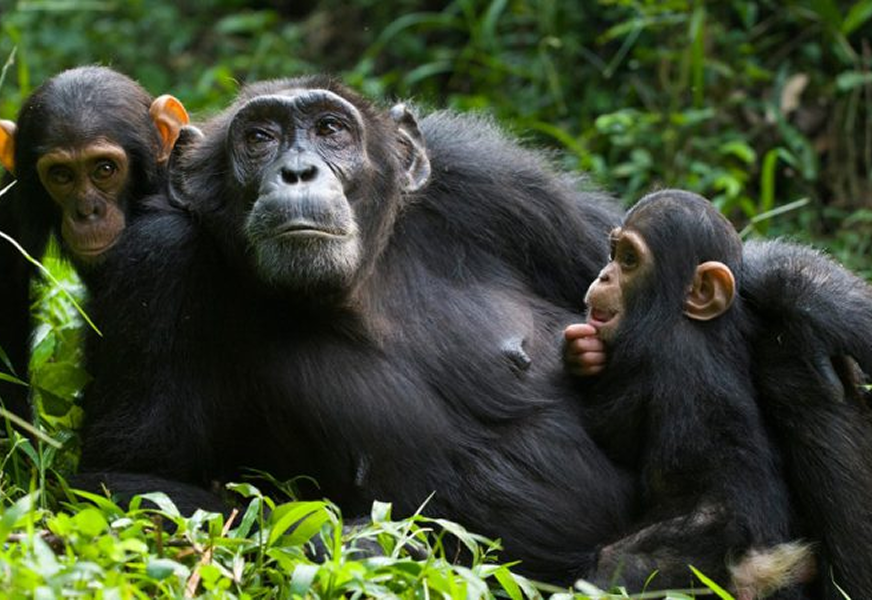Protais Seshaba
August 25, 2025
07 min read
The future importance of the School of Wildlife and Nature Photography for Rwandan Youth
In today’s rapidly changing world, conservation and creativity must go hand in hand. Rwanda, a country globally admired for its commitment to protecting biodiversity, has a unique opportunity to combine art, education, and sustainability. The establishment of the School of Wildlife and Nature Photography by Nature Nest Adventures (NNA) represents a visionary step in equipping young Rwandans with the skills and passion to protect their natural heritage while unlocking new opportunities for personal and national growth.
1. Preserving Rwanda’s Natural Heritage Through Visual Storytelling
Photography is more than capturing beauty; it is about telling stories that inspire action. The School of Wildlife and Nature Photography will empower Rwandan youth to document the country’s iconic wildlife, such as mountain gorillas, elephants, and crowned cranes, as well as lesser-known species that are often overlooked. These visual stories will serve as powerful tools in raising awareness about conservation challenges and successes, both locally and globally.
2. Creating Future Conservation Ambassadors
Young people are the custodians of Rwanda’s future. By training them in wildlife and nature photography, the school will nurture a new generation of conservation ambassadors. Equipped with cameras and creativity, these young storytellers will use their art to advocate for environmental protection, influence policies, and inspire communities to take pride in their natural resources.
3. Opening Pathways to Green Jobs and Creative Industries
Wildlife photography is not just an art—it is a profession with growing global demand. From eco-tourism marketing and media production to scientific documentation and environmental journalism, photography skills open up diverse career opportunities. The school will prepare students for green jobs that align with Rwanda’s development agenda and the global Sustainable Development Goals (SDGs).
4. Strengthening Eco-Tourism and Rwanda’s Global Image
Rwanda’s economy thrives on sustainable tourism, particularly its wildlife experiences. The School of Wildlife and Nature Photography will contribute to promoting Rwanda as a top eco-tourism destination by producing skilled photographers who can capture the country’s beauty for international audiences. Their images will attract travelers, investors, and conservation partners, further strengthening Rwanda’s reputation as a leader in conservation and sustainable tourism.
5. Bridging Science, Education, and Art
Photography will also serve as a valuable tool in research and education. Students trained at the school will support conservation scientists by visually documenting species behavior, habitat changes, and environmental threats. These images can be integrated into school curricula, museums, and conservation programs, making science more accessible and engaging to the public.
6. Empowering Communities and Inspiring Pride
The school will not only focus on urban youth but also extend opportunities to young people from rural communities surrounding national parks and biodiversity hotspots. By providing them with skills in photography, storytelling, and eco-tourism, the school will create new livelihoods while reducing pressure on natural resources. This inclusivity will build community pride and ownership of Rwanda’s rich biodiversity. The future of Rwanda’s conservation lies in the hands of its young people. The School of Wildlife and Nature Photography by NNA will be more than a training center; it will be a movement that blends creativity, conservation, and opportunity. By empowering youth to capture the beauty and challenges of Rwanda’s environment, the school will shape a generation of storytellers, conservationists, and eco-entrepreneurs who will safeguard the country’s natural treasures for decades to come.
Search Here
Recent News
-
How Nature and Wildlife Photography Can Contribute to Conservation in Rwanda
August 15, 2025
07 min read
-
The future importance of the School of Wildlife and Nature Photography for Rwandan Youth
August 25, 2025
07 min read





Protais is the CEO and Founder of Nature Nest Adventures, where he leads the vision and strategy of the company. With a deep passion for conservation and adventure, he creates memorable safari experiences that connect travelers with nature while promoting sustainable tourism.